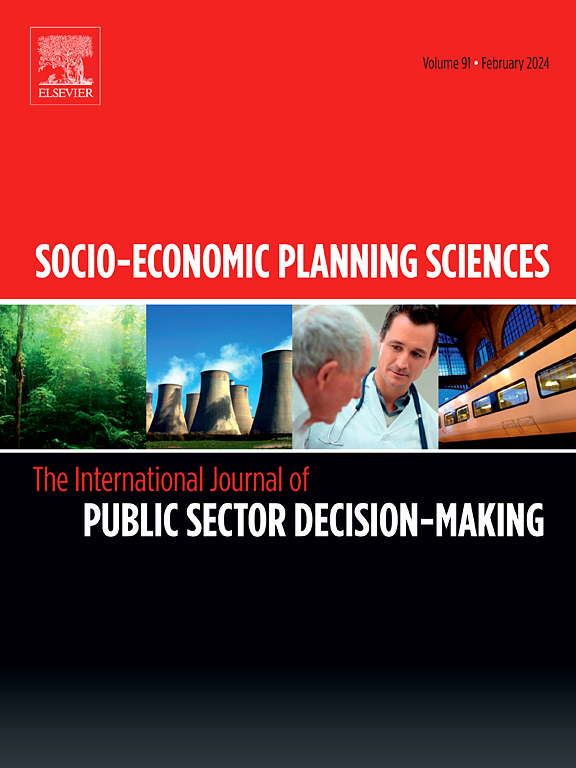低碳交通系统政策对全要素碳排放绩效的影响:来自中国 283 个城市的证据
IF 5.4
2区 经济学
Q1 ECONOMICS
引用次数: 0
摘要
减少交通部门的碳排放是实现 "碳中和 "的关键,也是低碳政策体系的重要组成部分。针对当前低碳交通政策评估的不确定性,我们对中国实施的低碳交通系统(LCTS)政策进行了深入分析和研究。利用 2006 年至 2020 年期间 283 个中国城市的数据,我们提供了有关低碳交通系统政策对碳排放绩效的政策效果、潜在机制和异质性的证据。结果表明,LCTS 政策显著改善了试点地区的碳排放绩效。实现这一政策目标的主要途径是降低试点城市的能源消耗、促进绿色技术的发展以及对公共交通进行低碳改造。此外,该政策的效果也存在差异,在中国东部和中部地区,以及在规模更大、布局更紧凑的城市,低碳公交系统的实施效果更好。本文通过分析政策机制和效果的异质性,为低碳交通政策的制定和选择提供参考。本文章由计算机程序翻译,如有差异,请以英文原文为准。
The impact of a low-carbon transport system policy on total factor carbon emission performance: evidence from 283 cities in China
Reducing carbon emissions from the transport sector is crucial to achieve “carbon neutrality” and is an important component of a low-carbon policy system. In response to the uncertainty of evaluating current low-carbon transport policies, we provide an in-depth analysis and examination of low-carbon transport system (LCTS) policies implemented in China. Using data from 283 Chinese cities between 2006 and 2020, we provide evidence on the policy effects, potential mechanisms, and heterogeneity of LCTS policies on carbon emission performance. Results showed that LCTS policies significantly improved carbon emission performance in pilot regions. The main ways to achieve this policy’s objective were to reduce energy consumption in pilot cities, to promote the development of green technologies, and to implement low-carbon transformation of public transport. Moreover, there was heterogeneity in the policy’s effects, with the implementation of a LCTS being more effective in eastern and central regions of China and in larger and more compact cities. By analysing the policy’s mechanisms and heterogeneity of effects, this article provides a reference for the formulation and selection of low-carbon transport policies.
求助全文
通过发布文献求助,成功后即可免费获取论文全文。
去求助
来源期刊

Socio-economic Planning Sciences
OPERATIONS RESEARCH & MANAGEMENT SCIENCE-
CiteScore
9.40
自引率
13.10%
发文量
294
审稿时长
58 days
期刊介绍:
Studies directed toward the more effective utilization of existing resources, e.g. mathematical programming models of health care delivery systems with relevance to more effective program design; systems analysis of fire outbreaks and its relevance to the location of fire stations; statistical analysis of the efficiency of a developing country economy or industry.
Studies relating to the interaction of various segments of society and technology, e.g. the effects of government health policies on the utilization and design of hospital facilities; the relationship between housing density and the demands on public transportation or other service facilities: patterns and implications of urban development and air or water pollution.
Studies devoted to the anticipations of and response to future needs for social, health and other human services, e.g. the relationship between industrial growth and the development of educational resources in affected areas; investigation of future demands for material and child health resources in a developing country; design of effective recycling in an urban setting.
 求助内容:
求助内容: 应助结果提醒方式:
应助结果提醒方式:


